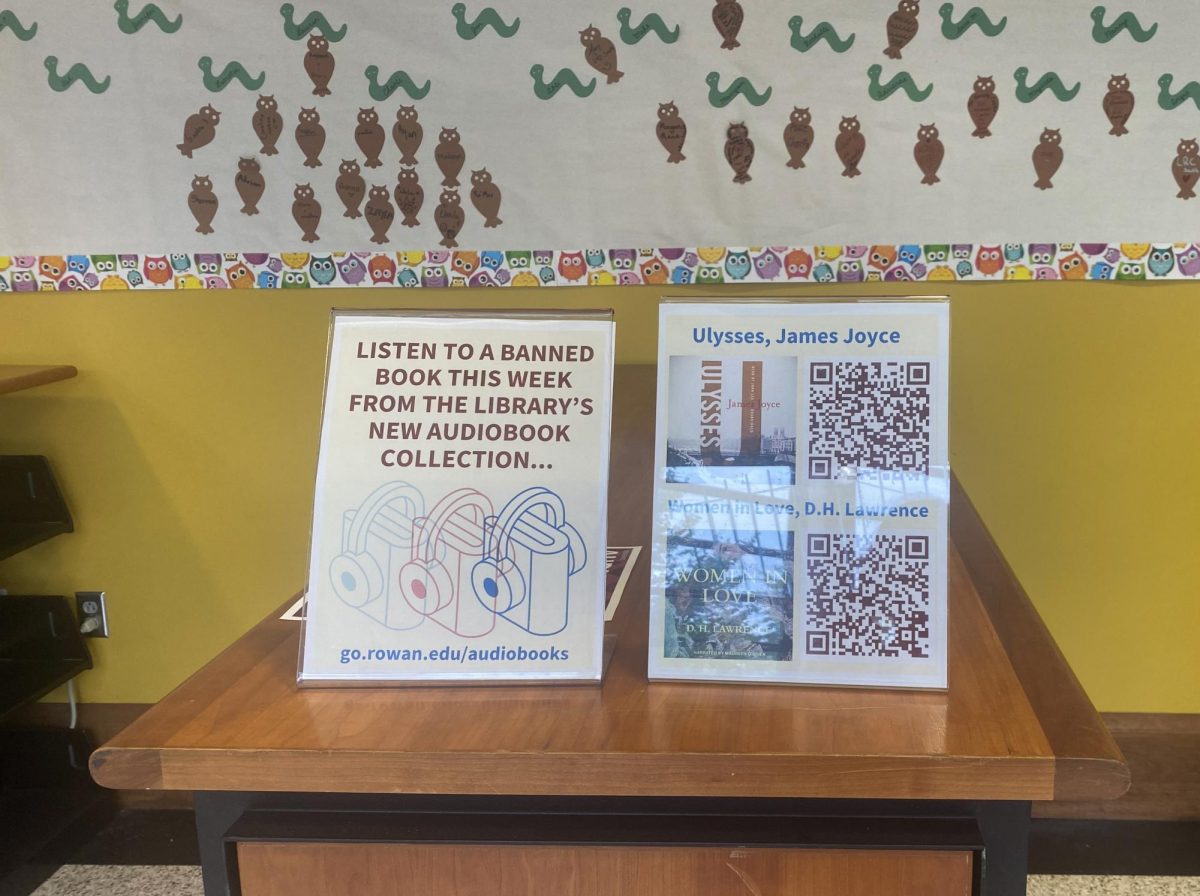Every year, books in libraries and schools across the country are banned or challenged for a variety of reasons.
In 2023, the American Library Association’s (ALA) Office for Intellectual Freedom noted 1,247 different attempts to ban books and other resources from libraries across the country. This marks a 65% increase in ban attempts since 2022. Many of the 4,240 titles challenged last year centered on themes.
While book bans and challenges are on the rise, they are nothing new, and the ALA already has one strategy to combat these efforts with Banned Books Week.
Held every year since 1982, the week is typically held during the last week of September and according to the ALA’s website, aims to defend and uplift “the freedom to explore new ideas and different perspectives.”
Rowan University’s Campbell Library had its own celebration of Banned Books Week, despite the ongoing construction that has seen all of the books moved to an offsite location for the foreseeable future.
Nancy Demaris is the access services and facilities operations coordinator for the library.
“Due to our unique situation at the library right now, we are open with reduced hours, but we have no physical books in the library. They’re all being worked on as a collection at an off-site location. However, Banned Books Week is still very important to us as members of academia and working in libraries,” said Demaris.
While the usual displays of banned books on tables with reasons for the challenges that most bookstores and libraries do at this time of year was not possible for the Campbell Library, they instead opted to put up laminated signs on the first floor to advertise the banned and challenged books offered by the app Libby, in audiobook form.
Jasmine Larzelere is the library assistant in access services.
“It was kind of killing two birds with one stone. We just got access to Overdrive and Libby, which is just a really great program, so Rowan students can access their audiobook library. And it happened to be banned book week, so we thought that would be a great way to advertise the service and kind of bring banned books to attention and have people check them out,” said Larzelere.
Upon downloading the app, the user is prompted to select a library and enter their library card information, at which point Rowan students can enter their student login information and access the digital library.
Users can also add other libraries if they own a card for another library as well.
Rowan students have three audiobooks lent out to them at one time through the app. Rowan’s app library features 262 titles for students to choose from.
Of those, eight titles were highlighted for Banned Books Week. Both “The Adventures of Tom Sawyer” and “The Adventures of Huckleberry Finn” by Mark Twain, James Joyce’s “Ulysses” and “Heart of Darkness” by Joseph Conrad were among the challenged and banned titles selected.
Students could scan the QR codes placed next to the images of the books to be taken to the app to download and listen to the audiobook in question.
Several of these titles and other notable banned books are classics, which Larzelere notes are often available for free.
“I would say, if a book is banned, I would encourage everyone to check it out… when a book is banned, it’s not normally for things like racism or sexism… It’s for talking about racism and sexism and things of that nature… reading really is one of the gateways into other people’s experiences. I don’t think there’s a better way to basically get into other people’s minds,” said Larzelere.
For comments/questions about this story DM us on Instagram @thewhitatrowan or email [email protected]

























































































































































!["Working with [Dr. Lynch] is always a learning experience for me. She is a treasure,” said Thomas. - Staff Writer / Kacie Scibilia](https://thewhitonline.com/wp-content/uploads/2025/04/choir-1-1200x694.jpg)









































